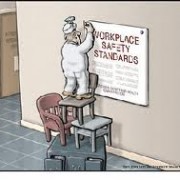Residential Tenancies Amendments Act 2020
If you own a residential rental property you should be aware of the significant changes enacted last year, but here is a summary of the major changes and dates.
NOTE: – These are different to the Healthy Homes requirements that are covered under different legislation
Landlords and tenants need to understand the recent changes to tenancy law and how this will affect them.
All landlords, including boarding house landlords, must comply with various legal obligations as governed by the Residential Tenancies Act (the Act). Starting from August 2020, parts of the Act are being changed by the Residential Tenancies Amendment Bill.
The changes are taking effect at three key dates:
Phase 1: 12 August 2020
Phase 2: 11 February 2021
Phase 3: By 11 August 2021
Phase 1: Law changes take effect 12 August 2020
Transitional and emergency housing exempt from the Act
From 12 August 2020, transitional and emergency housing will be exempt from the Residential Tenancies Act where the housing is:
- funded (wholly or partly) by a government department, or
- provided under the Special Needs Grants
This exemption is applicable for all people (new and existing clients) in transitional and emergency housing that meets the criteria above.
Providers of transitional and emergency housing will still be able to opt into parts of the RTA if they wish, by agreeing in writing with the client which parts will apply.
Rent can only be increased every 12 months
From 12 August 2020, rent increases are limited to once every 12 months. This is a change from once every 180 days (six months). Any rent increase notices given to tenants from 12 August 2020 must comply with the new 12-month rule. If a notice was given before 12 August 2020, it is still within the 180-day rule.
Phase 2: Law changes take effect 11 February 2021
Changes to multiple parts of tenancy law
From 11 February 2021, multiple changes to tenancy legislation will take effect. More details will be available closer to the time. The changes will cover:
Security of rental tenure
Landlords will not be able to end a periodic tenancy without cause by providing 90 days’ notice. New termination grounds will be available to landlords under a periodic tenancy and the required notice periods will change.
Changes for fixed-term tenancies
All fixed-term tenancy agreements will convert to periodic tenancies at the end of the fixed term unless the parties agree otherwise, the tenant gives a 28-day notice, or the landlord gives notice in accordance with the termination grounds for periodic tenancies.
Making minor changes
Tenants can ask to make changes to the property
and landlords must not decline if the change is minor. Landlords must respond to a tenant’s request to make a change within 21 days.
Prohibitions on rental bidding
Rental properties cannot be advertised without a rental price listed, and landlords cannot invite or encourage tenants to bid on the rental (pay more than the advertised rent amount).
Fibre broadband
Tenants can request to install fibre broadband, and landlords must agree if it can be installed at no cost to them, unless specific exemptions apply.
Privacy and access to justice
A suppression order can remove names and identifying details from published Tenancy Tribunal decisions if a party who has applied for a suppression order is wholly or substantially successful, or if this is in the interests of the parties and the public interest.
Assignment of tenancies
All requests to assign a tenancy must be considered. Landlords cannot decline unreasonably. If a residential tenancy agreement prohibits assignment, it is of no effect.
Landlord records
Not providing a tenancy agreement in writing will be an unlawful act and landlords will need to retain and provide new types of information.
Enforcement measures being strengthened The Regulator (the Ministry of Business, Innovation and Employment) will have new measures to take action against parties who are not meeting their obligations.
Changes to Tenancy Tribunal jurisdiction
The Tenancy Tribunal can hear cases and make awards up to $100,000. This is a change from $50,000.
Phase 3: Law changes take effect by 11 August 2021
Tenancies can be terminated if family violence or landlord assault has occurred
The below provisions must come into effect by 11 August 2021, but may come in earlier if the Government agrees (using an Order in Council):
Family violence: tenants experiencing family violence will be able to terminate a tenancy without financial penalty.
Physical assault: a landlord will be able to issue a 14-day notice to terminate the tenancy if the tenant has assaulted the landlord, the owner, a member of their family, or the landlord’s agent, and the Police have laid a charge against the tenant in respect of the assault.
More information
Reform of the Residential Tenancies Act 1986 (Ministry of Housing and Urban Development) Residential Tenancies Amendment Act 2020 (New Zealand Legislation website)
Tenancy.govt.nz (MBIE/Tenancy Services have developed a factsheet that summarises the changes) Source: tenancy.govt.nz/law-changes




